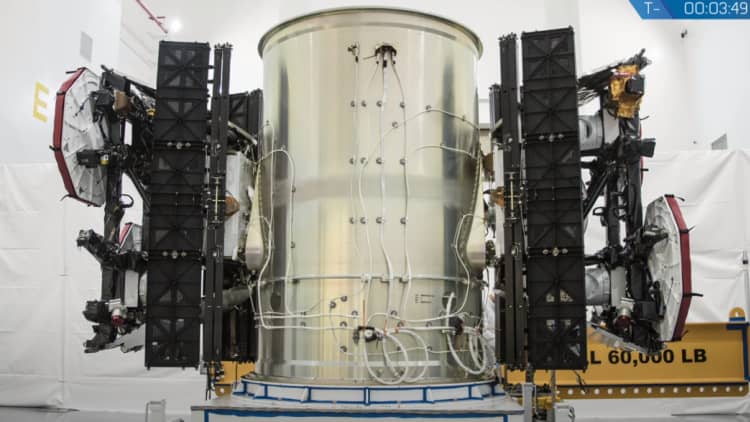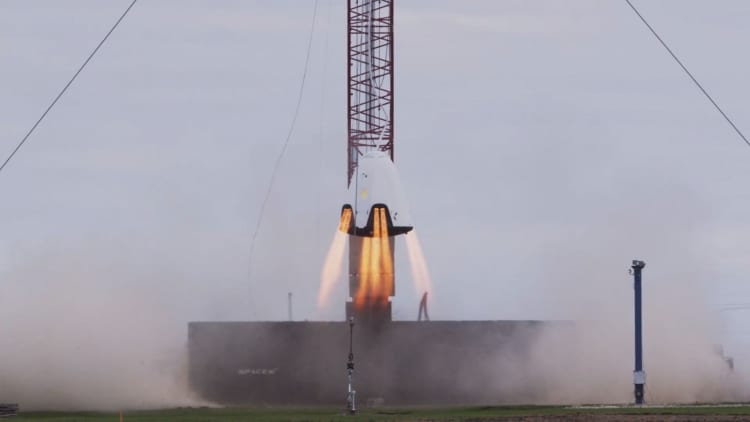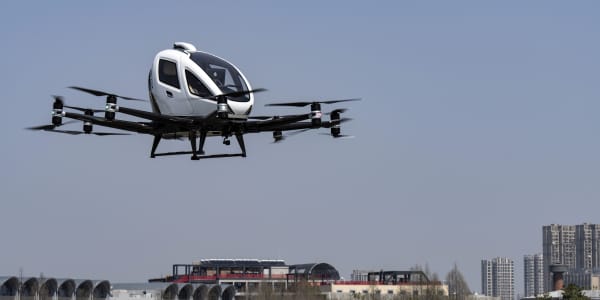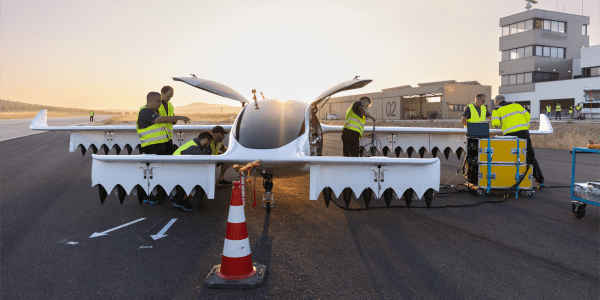SpaceX has vaulted to become one of the most valuable private companies in the world.
But, more importantly, SpaceX finds it "the easiest" to raise new funding compared with any private technology company, according to Robert Hilmer, global head of business development at private market analysis group Equidate.
"SpaceX is one of [the most], if not the most, popular pre-IPO tech companies globally," Hilmer told CNBC, speaking about how often the company is referenced in conversations with investors.
Elon Musk's space venture continues to raise funds at a steady pace, most recently bringing about $500 million for the massive satellite constellation it is building. Priced at $169 per share, the offering of 3 million new shares raises SpaceX's valuation to $27.5 billion, according to Equidate and two people familiar with the fundraising.
"There is an unlimited amount of funding that the company could probably access globally in private markets," Hilmer said, adding that he has personally met many of "a diverse group" interested in SpaceX.

"Everywhere I travel around the world, investors of all types — individuals, family offices, hedge funds, sovereign wealth funds or private equity — want to get into SpaceX," Hilmer said. "It's almost all investors I talk to."
Such vast, unparalleled interest from private investors gives SpaceX "a lot of runway" to continue its "very long-term approach" to the development of its business, Hilmer said.
The company certainly needs patient investors. SpaceX is pouring resources into building the rocket it wants to use to reach Mars, known as BFR, and its constellation of 4,425 internet satellites. Investor patience, therefore, is SpaceX's "key advantage" toward achieving success for both of those programs, Hilmer said.
What sets SpaceX apart to investors
Musk's grand vision for SpaceX requires that those who invest in the company need to take "a very long time horizon," Hilmer said, compared with "most companies in the world" where a company's management must "think about the next three to six months."
As a personal backer of SpaceX, venture capitalist Laetitia Garriott de Cayeux unequivocally agreed when she spoke at the New Worlds conference in November.
"Elon told me: 'Are you ready to not see a return for 15 years,' and I said, 'Yes, of course," de Cayeux said.
This makes SpaceX more resilient on a quarter-to-quarter basis. When the loss of the top-secret spacecraft Zuma occurred in January, Hilmer said "investors didn't care," even before SpaceX was backed by the U.S. Air Force to continue launching military satellites.
"You would think investors would be very worried about something like that … but investors weren't fazed at all," Hilmer said.
SpaceX especially has more control over which investors it picks to raise equity, according to Hilmer, as well as the amount SpaceX intends to raise, because "there is such an appetite." In full, Hilmer said other private tech companies of comparable size "can't say 'we're raising a round' and take a view of the next 10 to 15 years."
"I don't think there is a company in the world that has this sort of runway, because of the faith and support from investors in Elon and the team to execute," Hilmer added.
SpaceX's new fundraising
Direct investment in the most recent round came from Fidelity Investments, according to people familiar with the deal. A share buyback on secondary markets was also completed, according to those people, although it is unclear what the split was between the primary raise and the purchase of existing stock.
SpaceX declined CNBC's request for comment.
Fidelity Investments owned 41.7 million worth of SpaceX stock as of a Dec. 31 filing, which it bought for $135 per share. In 2015, SpaceX raised $1 billion in financing from Google and Fidelity, which took a combined 10 percent stake in the company.
Estimates for SpaceX's new valuation range from Pitchbook's $25 billion to Equidate's $27 billion, with the analysis groups noting there can be variability due to non-public information. Investment firm Space Angels noted in its first-quarter report that SpaceX would use the investment to develop its satellite constellation.
SpaceX launched the first two test satellites of its new network into low Earth orbit in February. Known as Starlink — a name SpaceX filed to trademark last year — the constellation is an ambition unmatched by any current satellite network. "[I]f successful," Musk said in a tweet, it would serve the "least served" around the world. The system is set to become operational once at least 800 satellites are deployed, FCC documents show.
WATCH: SpaceX and Boeing going head to head in commercial space race







